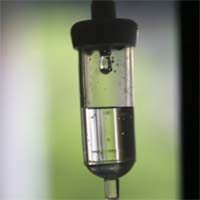Genes Key to Mesothelioma Chemotherapy Response
Research being performed in Eastern Europe may eventually help doctors around the world predict which mesothelioma patients will respond best to a particular type of chemotherapy. Mesothelioma is a fast-growing cancer triggered by exposure to asbestos. It is often treated with multiple modalities, including chemotherapy. As more is understood about the impact of genetics on medication response, chemotherapy for cancers like mesothelioma is moving away from a “one-size-fits-all” approach to a more tailored approach based on individual cellular characteristics. Now, a team of biochemists in Slovenia are studying genetically-linked responses to the chemotherapy drug gemcitabine, a nucleoside analog that some studies have found to be a promising alternative to the more conventional cisplatin-pemetrexed combination for mesothelioma. In a phase II trial involving 78 mesothelioma…









